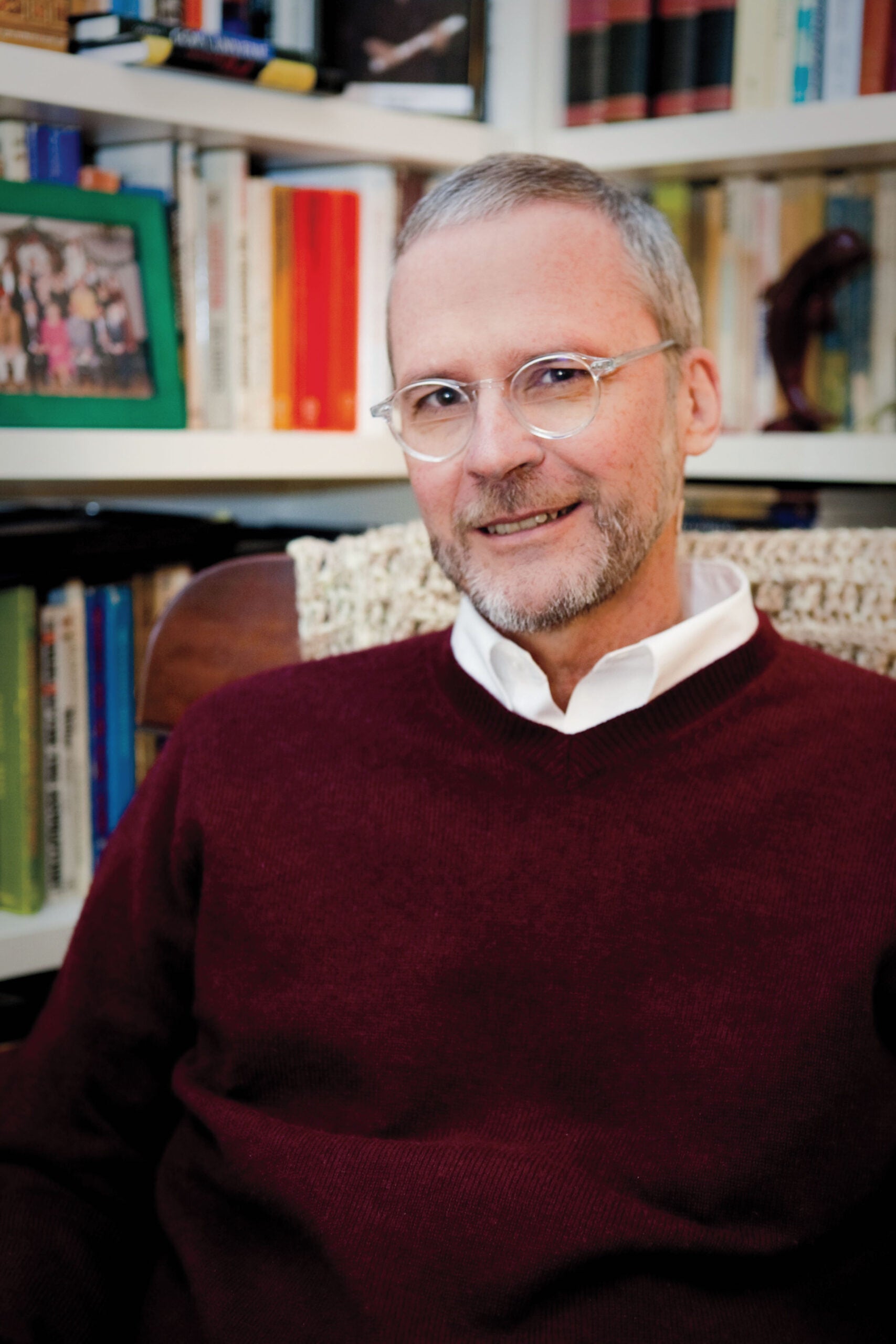Amazing Grace
Since William Stuntz’s death on March 15 at age 52, the renowned scholar of criminal justice at Harvard Law School and evangelical Christian has been eulogized in many ways, from the service at Park Street Church, to quotations in numerous obituaries, to the postings from his former students on an HLS journal site, to the appreciation on the New York Times editorial page. Below are excerpts from some of those remembrances.
“Among his many gifts to us was the grace with which he lived his life. In knowing Bill, we couldn’t help but be reminded to live life as our better selves. Bill once wrote, ‘We understand that the world is not what it should be, and that our own capacities to understand it are severely limited.’ He described and lived his life in recognition of the need for humility and also for judgment and work to repair what we find around us.”
Dean Martha Minow, from a statement to the Harvard community, March 15
“Students—you should know that my dad adored teaching you, and that he spoke to us of your accomplishments as though they were more important than his own. His most treasured accolade was the teaching award he received from the students at Harvard, because it meant that you had enjoyed your time with him as much as he had enjoyed his time with you.”
Sarah Stuntz, at her father’s memorial service at Park Street Church, March 19
“If somebody made a good point, he would say in this really appreciative tone, ‘Nice … nice,’ … . He would say it in the kind of tone that someone else might use to describe a sports car or a vintage wine, and his whole face would light up. As a colleague, whenever I elicited a ‘nice,’ I was thrilled, but for students, I think it was empowering because he was willing to recognize how much they could contribute and how great their ideas could be. …
“One of the things that’s striking about Bill was that he was in many ways a bundle of contradictions. … He was really successful, and yet extraordinarily humble. He was more conservative than many on the faculty, and also more radical in his views. His contradictions didn’t cancel each other out; they added up to make him really what people mean when they say ‘a true original.’ He’s someone who, I think, is truly irreplaceable. There are a lot of wonderful people, but there really isn’t anyone like him.’’
HLS Professor Carol Steiker ’86, quoted in The Boston Globe, March 18
“It’s 2006, and I’m in Professor Stuntz’s office. … I didn’t know much about evangelical Christians, but I thought it was safe to assume that what made them different from other Christians was the fact that they evangelized. … So I sat across from Professor Stuntz and hesitantly broached the subject: ‘So you may have noticed … that I am not quite Christian. I just wanted to know … is that ok?’ … Then Professor Stuntz leaned forward conspiratorially and whispered, ‘Can I tell you a secret? I’m so glad you’re different from me. If everybody thought the way I did, life would be so damn boring.’”
Tejinder Singh ’08, from a tribute posted with those of other students, on the Harvard Law & Policy Review site
“The whole time I was an assistant professor, he was very ill, yet … he would stop by my office, he would read all my drafts [of articles] and have something to say about them, with great insight. I really think he was one of the main reasons, the primary reason, I became a professor, that I became a criminal law scholar.”
HLS Professor Jeannie Suk ’02, from the Harvard Law School online tribute, March 15
“I had the privilege of co-authoring several articles and a blog [‘Less than the Least’] with Bill. I say privilege, but it didn’t always feel that way. I felt somewhat like the composer Salieri must have felt in the wonderful movie ‘Amadeus’ when he was helping Mozart with one of his last compositions. Salieri was a perfectly fine composer, but he wasn’t exactly Mozart. … At first, Salieri can see where Mozart is heading. ‘Yes, yes,’ he says, and writes down the notes. But pretty soon he’s simply stumped. He can’t figure out where Mozart will go next. This is what working with Bill felt like. I would keep up with him for a while, and sometimes even anticipate where the ideas were going; but then he would take the analysis to some new level, leaving me way behind. Bill could make connections that no one else saw, often demonstrating that the conventional wisdom has things exactly backwards.”
David Skeel, professor at the University of Pennsylvania Law School, from the Park Street Church memorial service, March 19
“‘The Collapse of American Criminal Justice’ by William Stuntz, to be published this year, is the capstone to the career of one of the most influential legal scholars of the past generation.
“The book argues that the rule of law has been replaced by the misrule of politics, with a one-way ratchet of ever-expanding criminal laws giving boundless discretion to police and prosecutors, leading to a system that wrongly punishes too many black men. …
“When he refuted legal orthodoxies in his quest to return mercy to criminal justice, literally redefining the field, he was living his faith. On many of America’s leading legal thinkers his influence was more profound. He reaffirmed for them the alliance between faith and reason and, finally, between knowledge and goodness.”
Lincoln Caplan ’76, from a New York Times editorial appreciation, March 23. Reprinted with permission from the author.
